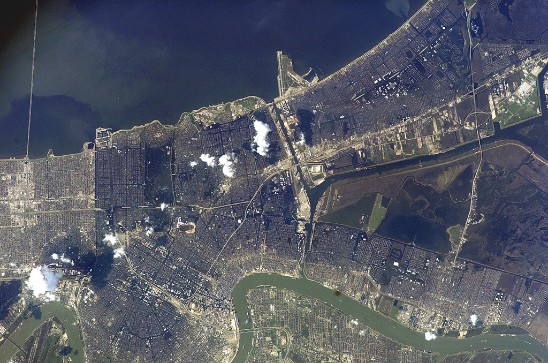 NASA
NASA
Disaster Risk and Climate Change: The Frog in the Boiling Pot
Podcast: Play in new window | Download
Subscribe: Apple Podcasts | RSS
Nearly 20 percent of earth’s land area and over half the world’s population are exposed to at least one natural hazard. Increased demographic, social, and economic exposure to hazards together with climate change is rendering populations more vulnerable to severe disasters. Through their impacts on the environment, climate change-induced hazards will adversely affect our water and food resources, industries and societies, and public health.
Due to increasing global surface temperatures, rising sea levels and hot extremes, such as droughts, will become more frequent; the risk of flooding will increase in areas of heavier precipitation; tropical cyclones – typhoons and hurricanes, will become more intense, with higher wind speeds, and more precipitation. Climate change and the increasing severity of natural hazards are pressing global concerns that necessitate attention, action, and investment.
The American Security Project’s podcast on Disaster Risk Management and Climate Change Adaptation featured Mr. Dante Disparte, founder and CEO of The Risk Cooperative and member of ASP’s Business Council.
Using the metaphor of a ‘frog in the boiling pot,’ Mr. Disparte discussed the urgency with which the private and public sectors need to adapt in order to address the risks posed by climate change hazards. He stressed the importance of not only preparedness, but of swiftly executed responses to natural disasters. Mr. Disparte explored the notion of a moral hazard – the private sector’s risk-taking without risk-bearing, and illustrated the tensions it creates within disaster risk management. In addressing the major challenges to risk management in the future, he concluded by stating that accountability, transparency, education, and collaboration are absolutely essential.





